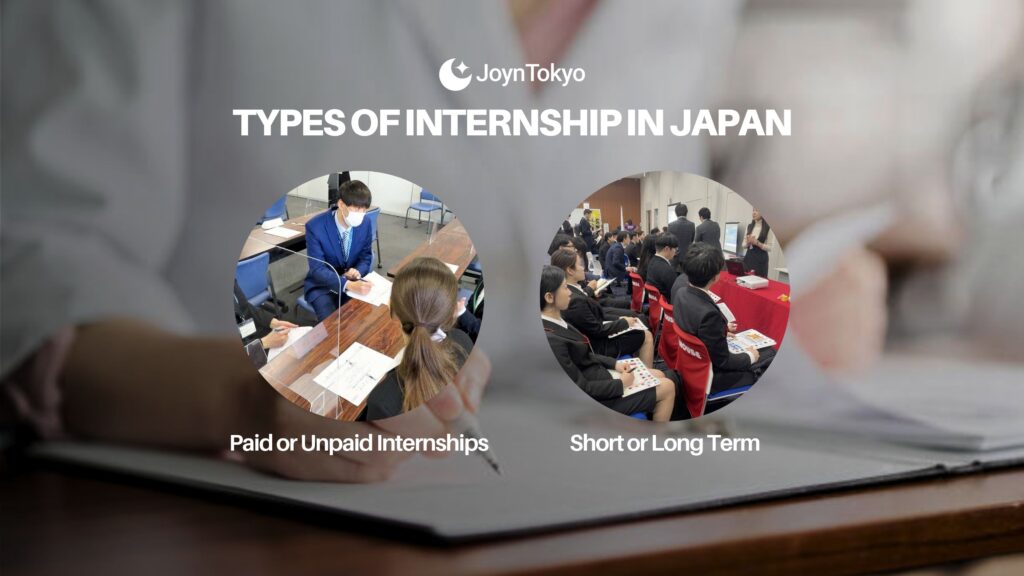With its long history, popular culture, and reputation for safety, Japan has long been a top destination for students and young people who want to find unique cultural experiences. It is also among the most popular choices for anyone looking to get a leg-up in their early career by getting an internship here. But how does one go about securing an internship? What can you expect? Let’s go through all of those things and more!
Why Choose Internships in Japan
The first question to answer is: when there are doubtless many internships in your home country — or indeed, in many others — why should one choose Japan?
Firstly, Japan is increasingly open to accepting interns from abroad across a wide range of industries, including technology and IT; engineering and manufacturing; finance and business management; marketing and international relations; education and teaching; and arts, culture, and design. The increased need for global talent means that many companies are not just willing, but eager to seek out applicants from abroad.
Additionally, the exposure that interns get to Japanese work culture and innovations, not to mention the added bonus of improving a language skill (if you are not already fluent in Japanese) can give interns a competitive edge in their future careers. So, what sorts of internships are available?
Types of Internships in Japan

Every internship will be slightly different in one way or another: as you can imagine, an internship in finance is very different to one in the arts. But there are commonalities to consider before you apply or accept an internship.
Paid and Unpaid Internships in Japan
Paid internships are more often offered by multinational corporations, or major domestic firms. These are frequently, but not always, in the tech or finance spaces, although this is not always the case. Some will provide housing and travel allowances, as well as a salary. These tend to be highly competitive, so try not to have your heart set on just one company.
Unpaid internships are far more common for startups and in the more creative spaces, where a lack of financial compensation is often balanced by both the prestige and the experience. These are also very competitive, and the lack of a salary means they can often be restricted to those who are independently wealthy, though there are some companies that will offer paid internships, and will partner with schools, such as Temple University Japan.
Short and Long Term Internships
Short term internships can last from a few weeks to approximately three months. That said, you will still typically need a Working Holiday visa or similar: doing work, even as an intern, is illegal with just a Tourist visa. These can be focused on particular projects or on cultural immersion and experience.
Long term internships, as the name suggests, tend to range from a longer period of six months to a year. These are typically more well remunerated, and will have a focus on developing skills and achieving specific goals, rather than cultivating language or cultural understanding.
Boost Your Chances of Finding the Right Opportunity!
Speak to our consultants to find out how you can start working in Japan!
Book Your FREE Consultation✓ 500+ Bookings as of 2026-03-03 ✓ English-speaking support
Eligibility and Requirements for Internships in Japan
While, again, each internship will have different requirements and qualifications, there are a few things that many will require or prefer.
Firstly, many will expect that applicants will be students or recent graduates: many companies are looking for youngsters with a little bit of hunger. That said, a little experience never goes amiss, so don’t be dissuaded if you have already had a job. A strong academic background is also a very good way to get your foot in the door, as is some basic Japanese language ability.
The other thing you will need — whether you already have it or still need to acquire it — is a valid working visa. A Student visa that allows part-time work may be acceptable for some internships, as are Cultural Activities or Working Holiday Visas.
How to Find Internships in Japan

The first place to look, if you are a student, would be your university career center. Whether you are studying in Japan or in a different country, they will be the first port-of-call for internships or exchange programs. Not only that, but the experience of the guides will be extremely helpful in securing places: remember, sometimes it’s about who you know, not what you know.
With that in mind, networking and cultural events can also be very useful. Even meeting someone from the Japanese consulate or embassy can open doors you didn’t even know existed. There may also be events on campus (or, if you’re in Japan, in your city) where recruiters will be on the hunt for potential interns.
Top Five Platforms to Find Internships in Japan

If you don’t have access to these, however, there are also specialist internship agencies and recruiters that can help you to polish your resume and stand out. Here is our top three:
- GaijinPot Jobs: This long-trusted Japan employment-specialist is mainly geared for those looking for full-time employment, but it does occasionally offer internships. As a highly trusted website with a track record going back over two decades, the internships that they post can be trusted to be legit.
- Jobs in Japan: Another well-regarded jobs site, this has a reputation among expats as being top-notch, and also occasionally will post internships. Very often, the internships that are posted are paid, so this is one to visit if you’re looking for a remunerated position.
- LinkedIn: Your all-in-one jobs website, famous the world over, LinkedIn is great for making connections and will also post internships in Japan. They tend to be geared more towards those with Japanese language ability, but if you can connect with people on the site, you might be able to find an internship that is perfect for you.
- Zentern: Tokyo-based internship agency that specializes in connecting ambitious individuals with tailored internship placements across Japan. Unlike traditional recruiters, their diverse international team has personally experienced the challenges of interning abroad; they speak multiple languages like Japanese, English, Spanish, Italian, and Dutch, and use that experience to guide and support interns from start to finish
But if you don’t see anything from your ideal company on these sites, don’t forget to check their website directly: sometimes they will allow for direct internship applications.
Internship Application Process in Japan and Tips for Success
As with any position, it is important to make sure that you have all your ducks in a row before applying. If you have access to a university career center with experience handling applications in Japanese, then they can help you out. But if you’re doing it yourself, here are some things you will definitely need:
- A Japanese style resume (Rirekisho/履歴書): A brief summation of your work and education history: you can find a template here. This is slightly different from a western resume, as it is purely factual information about when and when you have worked at different places, and does not include detailed information about responsibilities. What it may ask for, that western resumes typically do not, is a photograph.
- A professional cover letter tailored to the company: This is basic, but make sure that your cover letter not only explains who you are and why you are a good fit for the internship, but why you want it. Make sure it is written with this role and this company in mind. For best results, do not use AI. It’s also a good idea to highlight your cultural adaptability, and explain why you are excited to live and work in Japan.
- Be prepared for both online and in person interviews: While you will not be able to conduct in-person interviews if you are based outside of Japan, if you are already here, it is now common practice to have online interviews before having a final face-to-face with your potential superior, or even the CEO. This is a perfect time to score points by demonstrating your understanding of Japanese business etiquette.
Read More
Challenges of Internships in Japan and How to Overcome Them
The most significant challenge for many people will be the Japanese language. If you can learn some Japanese before you go (especially hiragana and katakana) then you will face fewer hurdles than if you don’t.
There are also some major cultural differences in terms of hierarchy: Japanese businesses tend to have very formalized work structures, and complaining to your superior is far less common than in the west. Additionally, some industries expect long working hours.
Another thing to factor in is that, if you are living in a major city, such as Tokyo or Osaka, your living costs could be quite high. This is especially important to note if you are not being paid for your internship.
Read More
So, what tips do we have?
- Take Japanese language classes before arrival: As mentioned, learning some Japanese before you go can make a huge difference. Very few people will expect you to be fluent, but it helps both to ingratiate yourself and make your work easier with even a little conversational ability.
It also helps with our next tip: try to network with peers, colleagues, and other professionals. You should also remember to be flexible and open-minded in the advice that you receive, even if advice from a Japanese firm sounds weird.
- Manage finances and research affordable housing: Especially if you are doing an unpaid internship, you want to make sure that you do not run out of money, and are able to afford rent, transport and food.
Internships in Japan can be a gateway to an international career: impress your bosses and colleagues, and they might even offer you a position. But even if not, the professional growth and cultural enrichment will look good on any resume.
Make sure you prepare early by researching programs, polishing up your documents, customizing them for the roles you are applying for, and practicing Japanese.
Getting an internship in Japan might not just transform your career, but also your life.












